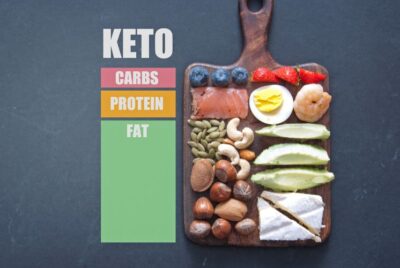Is It Time to Quit Keto? Signs That Might Say Yes
Hello, my fellow health enthusiasts! If you’re reading this, you’re probably in one of two groups: you’re either considering the keto diet, or you’re already on it and experiencing some signs that may be telling you it’s time to quit. The keto diet has helped thousands of people lose weight, stabilize their energy, and feel more in control of their health. But what if it’s no longer working for you—or worse, making you feel off?
Keto isn’t meant to be forever for everyone. While it can be a powerful short- or mid-term strategy, there are situations where transitioning away from strict keto may be the right move for your body, goals, or lifestyle.
In this article, we’ll cover the key signs it might be time to quit keto, how to transition off safely, and what to consider before making your decision.
When Keto Still Might Be Worth Sticking With
Before you throw in the towel on keto, it’s worth pausing and asking a few key questions — especially if you’re in a season of transition or stress. Many Christian women I talk to hit a wall not because keto isn’t working, but because something small is off. Let’s reflect:
- Are you still in the adjustment period (first 2–4 weeks)?
The keto “flu” is real — fatigue, headaches, and cravings can hit hard as your body transitions. Don’t confuse this with failure. This is often the body detoxing from sugar and learning to burn fat. Products like LMNT Electrolyte Packets or Ultima Replenisher (sugar-free and keto-friendly) can help replenish lost minerals and reduce symptoms dramatically. - Are you under-eating or skipping electrolytes?
As women over 40, we often underfuel — especially when juggling family and work. If your energy is tanking, it may be a matter of nourishment. Adding a daily keto-friendly collagen shake like Equip Prime Protein or Perfect Keto Collagen gives your body clean protein and added electrolytes — plus it’s quick and easy for busy mornings. - Is your version of keto nutrient-dense or full of processed products?
Keto isn’t about bacon-wrapped cheese every night. Try whole foods first. One simple switch? Keep Avocado Oil Mayo and Chosen Foods Avocado Oil Spray in your pantry — they support hormone balance and reduce inflammation while keeping meals clean and delicious. - Are you getting enough sleep and managing stress?
No amount of macro tweaking will help if cortisol is spiking.
Signs Keto Might Not Be Working for You
Here’s where we delve into the heart of the matter. What are the signs that might indicate the keto diet isn’t right for you?
1. Constant Fatigue
Do you find yourself continuously feeling tired, even after a good night’s sleep? While it’s normal to feel tired during the initial stages of keto (often referred to as the ‘keto flu’), this should pass after a few days to a week. If it doesn’t, it might be a sign that your body isn’t adapting to this new diet as expected.
2. Digestive Issues
Experiencing digestive problems such as constipation, bloating, or diarrhea? A drastic shift in diet like going keto can lead to changes in your gut microbiome, which could result in these issues.
3. Nutrient Deficiencies
Despite being a high-fat diet, keto should still be balanced. If you’re experiencing symptoms like hair loss, dry skin, or brittle nails, it might indicate nutrient deficiencies – a sign your diet might need a revamp.
4. Impact on Mental Health
Many people report feeling sharper mentally when on keto. But if you find yourself feeling foggy, anxious, or depressed, this could indicate that the diet isn’t suited to your body’s needs.
5. Negative Impact on Physical Performance
If you’re an athlete or frequently engage in high-intensity workouts, and you notice a significant drop in your performance, it might be a sign to reevaluate.
How to Transition Off Keto the Smart Way
If you decide keto’s no longer right for you, don’t swing straight into high-carb eating. A gradual transition can help you avoid weight regain, energy crashes, or blood sugar spikes.
Step-by-Step Offboarding:
- Monitor how your body feels—energy, digestion, mood, and sleep
- Increase carbs slowly—start with 10–15g per week, ideally from whole foods (fruit, sweet potatoes, legumes)
- Reduce fat slightly as carbs increase to maintain energy balance
- Focus on protein and fiber to stabilize appetite and blood sugar
Alternatives to Strict Keto
If strict keto isn’t sustainable, consider:
- Low-carb (not keto): 50–100g carbs/day
- Targeted keto: Eating carbs before workouts
- Cyclical keto: Keto most of the week, carbs on training days
- Mediterranean low-carb: More fruits, legumes, and healthy fats
There are many other dietary paths to health: Mediterranean, Paleo, or simply a balanced diet filled with whole foods can be alternatives if keto isn’t working for you.
Conclusion
Remember, there’s no single ‘perfect diet’ that fits everyone. Your best diet is the one that makes you feel good, fuels your lifestyle, and helps you meet your health goals. Listen to your body. Stay informed. And remember—evolving your approach is a sign of growth, not failure.
FAQs
1. Can the ‘keto flu’ symptoms last longer than a week? It varies for everyone, but if symptoms persist beyond a couple of weeks, it may be worth discussing with a healthcare provider.
2. Are there any long-term health risks to a keto diet? While there is ongoing research into long-term effects, some potential risks include nutrient deficiencies and an increased risk of heart disease due to high saturated fat intake.
3. Can I switch directly from keto to a regular diet? It’s advisable to transition slowly to avoid any digestive discomfort.
4. Is it normal to gain weight after stopping keto? Some weight gain is normal as your body readjusts, but this should stabilize over time.
5. Are there any supplements to mitigate the side effects of transitioning off keto? While some supplements may help, it’s best to discuss this with a healthcare professional for personalized advice.




